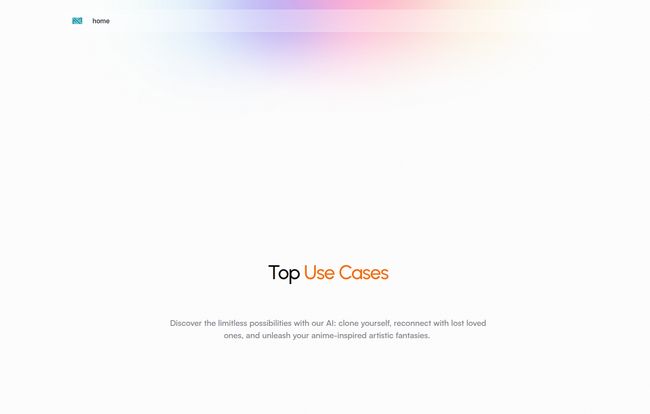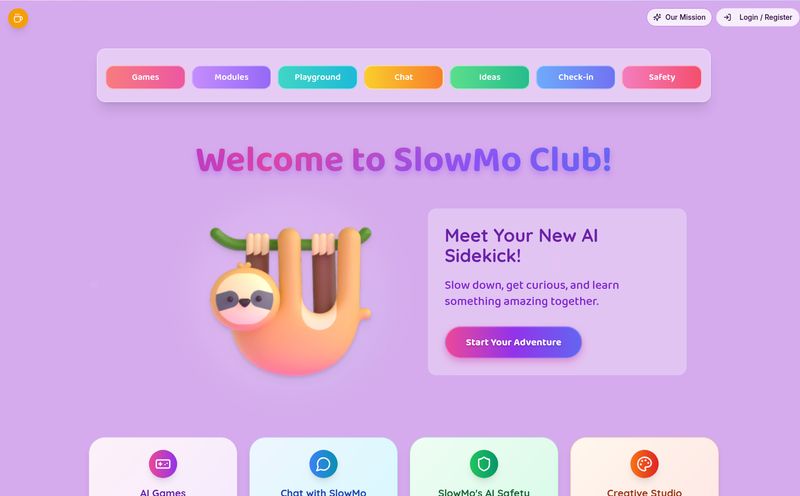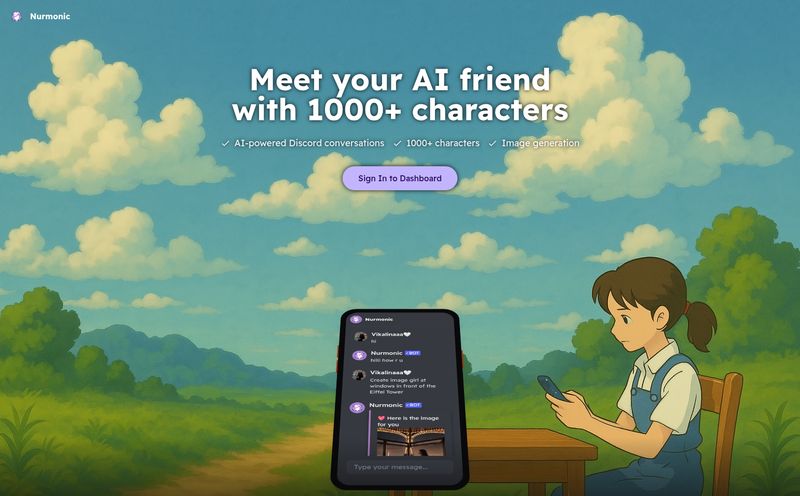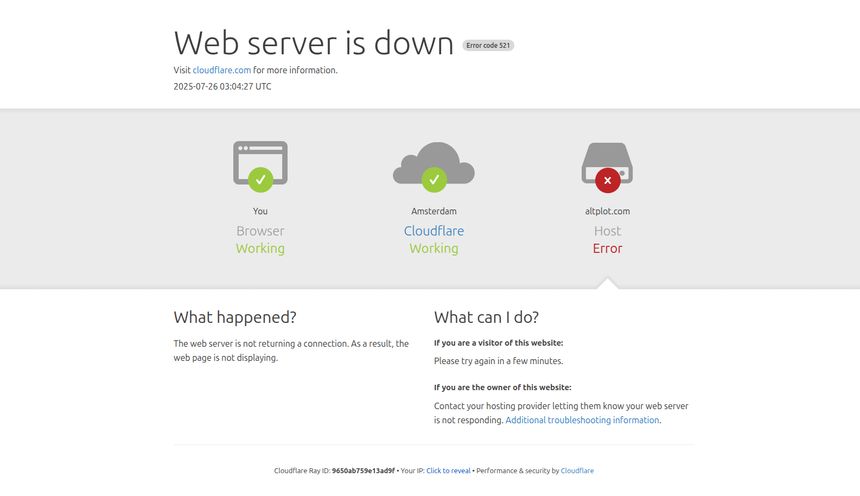I’ve been in the SEO and digital trends game for a long time. I’ve seen platforms rise and fall, fads come and go, and AI evolve from a clunky novelty to... well, whatever it is we have today. Every now and then, a tool pops up that makes me lean forward in my chair. Not just because it's new, but because it feels like a genuine step into uncharted territory. MuseChat is one of those tools.
On the surface, it’s an AI character platform. Big deal, right? We’ve seen character AIs before. But this one feels different. It’s not just about chatting with a pre-made anime catgirl or a historical figure. MuseChat is selling something far more ambitious. It’s selling the ability to create digital echoes of people. Of yourself. Even of those you've lost. Yeah. It gets deep, fast.

Visit MuseChat
So, What Exactly is MuseChat Trying to Be?
Let's get the marketing speak out of the way. MuseChat positions itself as an "AI companionship platform to create and interact with AI characters." But that's like calling a spaceship a 'flying vehicle'. It’s technically true but misses the entire point. In my view, it's more like a digital workshop for crafting conversational beings. You're not just a user; you're a creator, a writer, a director, and in some cases, a digital medium.
The platform encourages you to build companions from scratch, write interactive fiction with an AI co-author, or engage with its most talked-about features: creating a 'digital twin' of yourself or a 'griefbot' to simulate conversations with a departed loved one. This is where it veers from a simple creative tool into something that feels pulled straight from an episode of Black Mirror. And honestly? I'm here for it. Someone has to push these boundaries.
The Core Features That Actually Matter
I poked around the use cases and here’s the stuff that stands out from the usual chatbot fluff.
Crafting Your Digital Characters
At its heart, this is for the creatives. The writers, the role-players, the world-builders. The idea is that you can build out a character's personality, backstory, and voice, and then interact with them. It could be a fantastic tool for brainstorming dialogue, testing character consistency, or just breaking through a stubborn case of writer’s block. Think of it as a sparring partner for your imagination.
The Sci-Fi Reality of Digital Twins
Okay, this is wild. MuseChat proposes you can "clone yourself." Scale a digital version of you. The implications are huge, for better or worse. On one hand, imagine an author training an AI on all their works to answer fan questions in their voice. Or a CEO creating a digital twin to handle initial client queries. The potential for productivity and legacy is undeniable. On the other hand… it's a bit creepy, isnt it? Creating a digital copy of yourself raises a whole host of questions about identity and data. It's a fascinating, and slightly unnerving, proposition.
The Elephant in the Room: Griefbots
This is the feature that will get the most headlines and stir the most debate. The platform allows you to create an AI to "reconnect with lost loved ones." This technology, often called a griefbot, is incredibly controversial. Proponents argue it can provide comfort and a way to process grief, allowing for unsent goodbyes to be said. And I can see that. I really can. But critics, and I count myself among them, worry it could create an unhealthy dependency or a distorted memory of the deceased. It’s an ethical minefield. A 2021 article from MIT Technology Review covered this emerging field, and the questions they raised then are even more pertinent now. Using this feature requires a lot of emotional and ethical self-awareness.
Let's Talk Money: The MuseChat Pricing Tiers
Nothing in the AI world is truly free, and MuseChat is a premium product. They seem to be skipping a free-for-all plan, which might be a way to keep the quality up and the server costs down. Here’s how it breaks down:
| Plan | Annual Cost | Key Features |
|---|---|---|
| Premium | $144 / year | Access to their "Bryce" LLM, unlimited text generation, pre-trained voices, and a 4096 token memory. |
| Deluxe | $294 / year | Everything in Premium, plus chat analytics, custom voices, and a massive 16,384 token memory. |
So what does that mean in plain English? The Premium plan is your entry ticket. You get unlimited chats and a decent 'memory'. Token memory, by the way, is just the AI's short-term memory for your current conversation. 4096 tokens is pretty standard, it can remember the last few thousand words of your chat. The Deluxe plan is for the power users. The 4x increase in memory means you can have much longer, more coherent conversations without the AI forgetting what you talked about an hour ago. The custom voices and chat analytics are the real cherries on top for those who are serious about creating a very specific character or digital twin.
My Honest Take: The Good, The Bad, and The Uncanny
Alright, let's cut to the chase. Is this thing worth your time and money?
The good is obvious. It’s unique and ambitious. It’s not another ChatGPT wrapper. It’s a dedicated platform with a very specific, very futuristic vision. For writers and creators, the potential is genuinely exciting. This could be a game-changer for interactive storytelling.
The bad? Well, the site is new. That’s a pro and a con. It’s exciting to be an early adopter, but it also means you’re the beta tester. Expect bugs. Expect features to change. The price is also a factor. At $144 for the cheapest plan, it’s not an impulse buy. You have to be committed to the concept. It's more expensive than, say, a Character.AI subscription, so it really needs to deliver on its advanced promises.
And then there's the uncanny. This isn't a flaw in the product but a feature of its existence. The ethical questions around digital twins and griefbots are profound. This isn't a tool you can just use mindlessly. It demands introspection. It's powerful, and like any powerful tool, it can be used for wonderful or questionable things. And that, I think, is the most interesting part of it all.
Frequently Asked Questions About MuseChat
- What is MuseChat in a nutshell?
- It's an advanced AI platform for creating and interacting with unique AI characters. You can use it for creative writing, building digital companions, or more personal projects like creating a digital version of yourself or a simulation of a loved one.
- Can I really talk to a loved one who has passed away?
- You can create an AI character based on a loved one. It's crucial to understand that this is a simulation, an echo based on the information you provide. It is not supernatural. It's a complex tool that should be approached with caution and emotional preparedness.
- Is MuseChat free to use?
- Based on the information available, MuseChat is a premium service with paid annual plans. There doesn't appear to be a permanent free tier, though they may offer trials in the future.
- What is "token memory" in MuseChat?
- Think of it as the AI's short-term memory. The more tokens, the more of your recent conversation the AI can remember, leading to more coherent and context-aware interactions. The Deluxe plan's 16k token memory allows for very long, in-depth conversations.
- Is creating a "digital twin" of myself safe?
- Safety in this context has two sides: data security and psychological impact. You'd need to trust MuseChat's data privacy policies. Psychologically, the effect of interacting with a version of yourself is a new frontier, so it's wise to proceed with awareness and clear personal boundaries.
- How is MuseChat different from other AI chatbots?
- Most chatbots are either general assistants (like ChatGPT) or offer pre-made characters. MuseChat's focus is on user creation. It provides the tools for you to build, train, and customize the AI character from the ground up, particularly with features like custom voices and deep memory in its higher tier.
Is MuseChat the Future or a Fleeting Fancy?
I don’t have a crystal ball. But my gut tells me that tools like MuseChat aren’t just going to disappear. They are the logical, if slightly strange, next step in our relationship with artificial intelligence. It's moving beyond a tool for information retrieval and becoming a medium for creation, connection, and even contemplation.
It's not for everyone. It's probably not for most people, at least not yet. But for the curious, the creative, and the courageous, MuseChat offers a glimpse into a future that is equal parts fascinating, innovative, and deeply, deeply human. Even if it's all just code.
Reference and Sources
- MuseChat Official Website: https://musechat.com/
- MIT Technology Review, "The chatbot will see you now": https://www.technologyreview.com/2021/07/09/1028122/griefbots-chatbots-dead-people-grief-bereavement-psychology/



